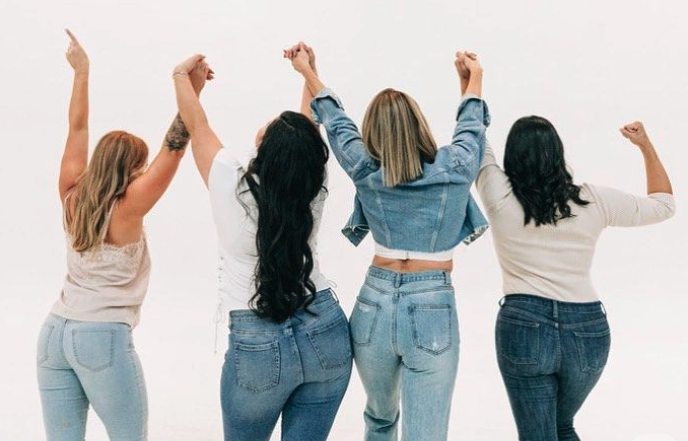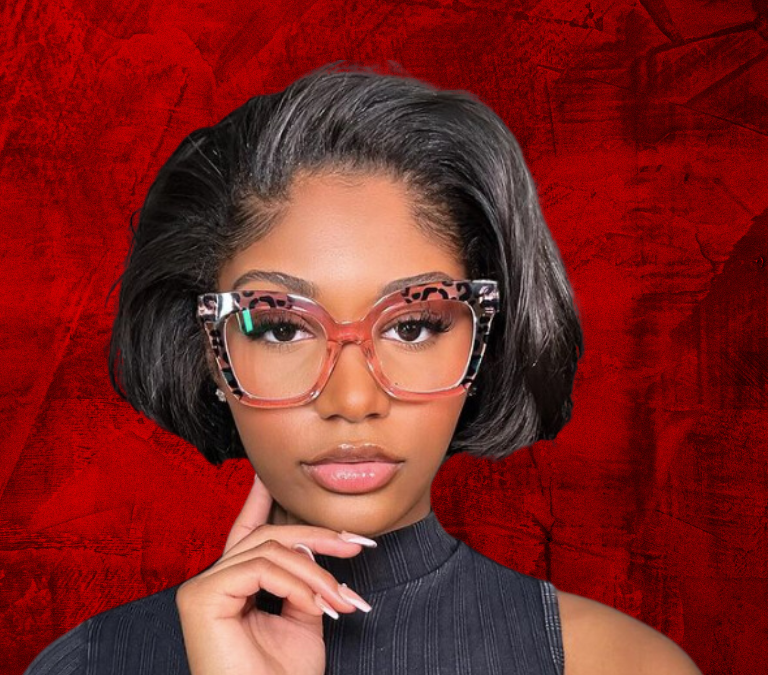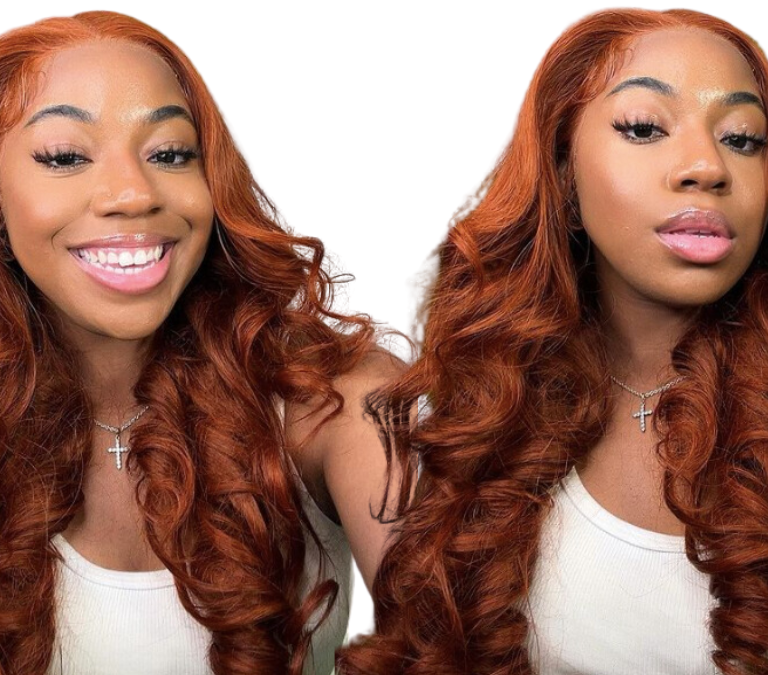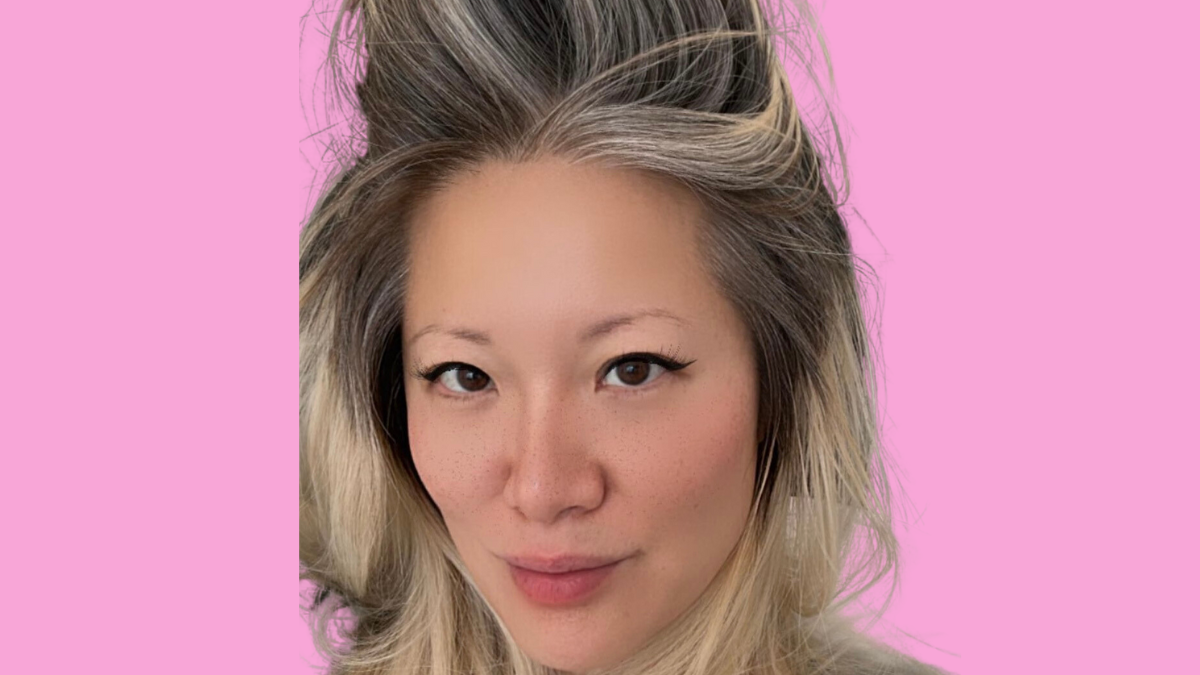
The first time someone noticed a gray hair on me, I was 8 years old and in the 3rd grade. The boy behind me leaned over my shoulder and said, “Maggie, you’re old! You have a white hair!” I told him to pluck it out and show me. He did and I stared at the single, stark-white strand. Was I old? Only old people have white hair!
[SEE ALSO: Best Self Tanners For Black and Brown Skin]
I started regularly coloring my hair in my 20s, from blue-black to copper streaks to platinum blonde because Glamour Magazine once wanted me to write a personal essay about how “Anyone Can Be Blonde.” Famed New York City hairstylist Louis Licari spent 8 hours bleaching and toning my hair.
By the early evening, I was an icy Scandinavian. My golden halo was glorious, but the temporal and financial upkeep was too much for a Condé Nast assistant. I went back to dyeing it dark.
Blonde ‘Til I’m Dead
In my early 30s, I was about 30% gray, so coloring my hair every six to eight weeks became part of my routine. I didn’t think I’d ever stop dyeing my hair because (say it with me) only old people have white hair. I cringed every time I saw my mom’s salt-and-pepper crop. “Mom, you should just color your hair,” I’d admonish. “You would look so much younger.”
Mom demurred and I would tell myself I was never going to let myself go like that. By this point, I’d returned to platinum blonde because it hides grays better and often joked, “I’ll be blonde ’til I’m dead.”
But something happened between the pandemic, my never-ending divorce, and falling in love again. In the face of life, death, and disconnect, the zero-sum game of eternal youth and beauty stopped mattering so much. My makeup routine went from minimal to zilch during the stay-at-home orders and I rarely had a root touch-up, like most of us during the lockdowns. Loving and being loved by someone who accepted me, grays and all, also helped my vain proclivities.
I’d been thinking about growing out my grays for about two years, but every time I brought it up with a hairstylist, they flatly told me, “You can do it, but it will definitely make you look older.”
The horror!
Asian Women Aren’t Supposed To Age
You’ve seen that meme about how Asian women age. We look virtually the same throughout our adulthood until — boom! — we’re postmenopausal shrunken grannies.
My father had already warned me of this when I was a teenager. “Don’t worry, you’ll look young almost forever, but one day, you’re suddenly a halmoni (Korean grandma) and then you’ll die.” Decades later, I still don’t know if he meant to be reassuring.
Looking young is part and parcel of every culture. And no wonder: In the patriarchy, a woman’s power, status, and value most often derive from her beauty, which is almost always equated with youth. Cleopatra was doing honey facials and taking donkey milk baths to keep her skin youthful. In the 16th and 17th century, women used mercury and lead cosmetics to keep their skin pale. Unfortunately, they didn’t know these metals were poisonous with deleterious side effects that included death.
Things haven’t much changed in 2023, except for the ubiquity of anti-aging skin creams, treatments, lasers, and surgery. Botox, like lead, is a toxin that’s purported to make us look younger.
Asian culture, particularly Korean like mine, is particularly obsessed with skin. Our genes give us an advantage but our culture gives us the means—and the many kinds of skincare and treatments—to maintain the ageless Asian aesthetic. I started using moisturizer (Clinique’s Dramatically Different Moisturizer, holla) when I was 14. My white and Black girlfriends thought I was crazy (like a silver fox!). Now everyone knows about K-beauty… which reminds me I need new eye cream.
An FU To The Patriarchy
Still, within the extremes of youth maintenance, women have been deriving power, value and self-worth from things beyond physical appearance for several decades. Women have financial independence; women are single mothers by choice; women gather by the millions to protest human rights violations; Barbie is the first film directed by a woman to make a billion dollars at the box office.
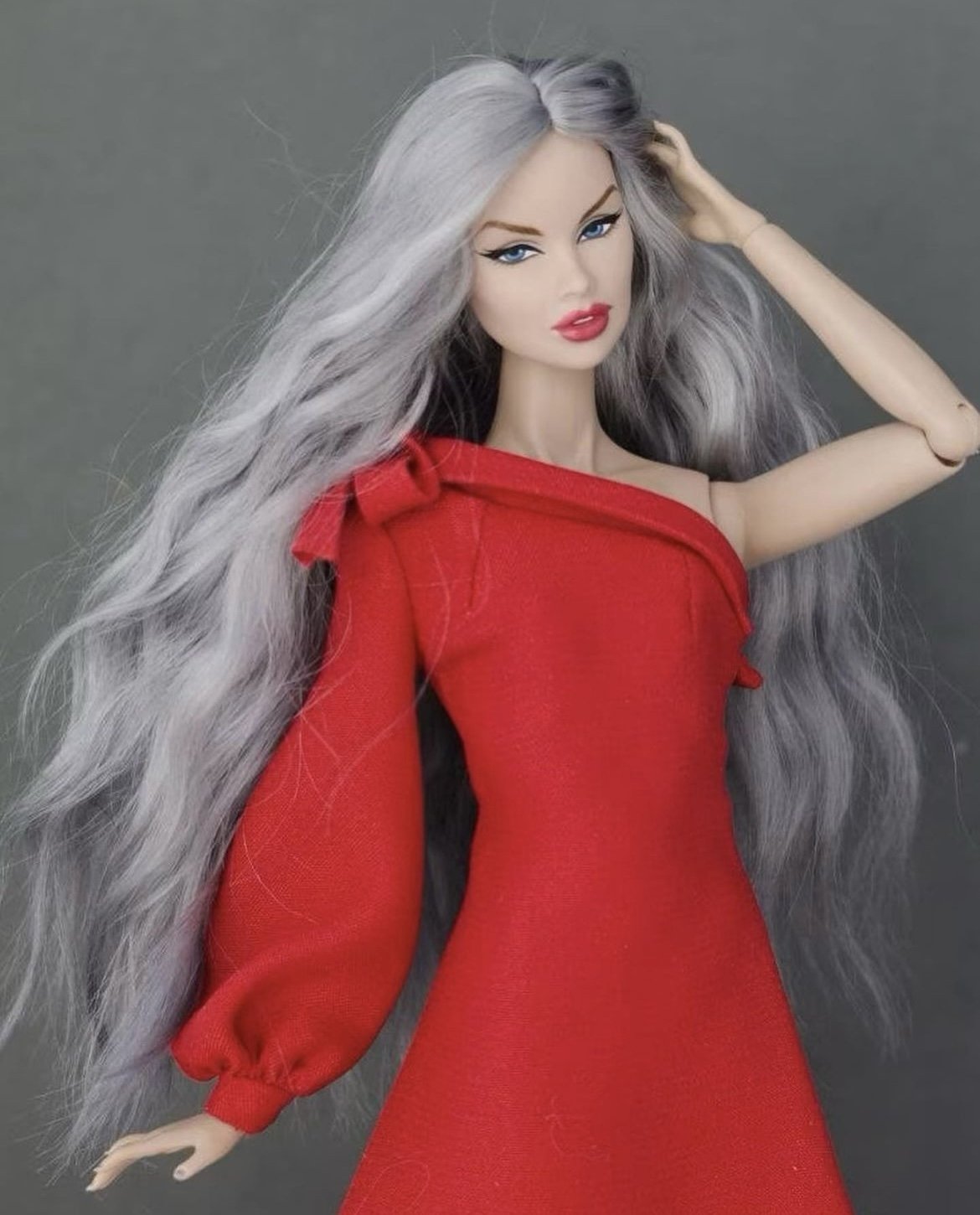
It’s not surprising that the past few years have seen an emergence of the #silversister. Swathes of silver, gray and white-haired women are documenting their #grayhairtransition or, if they’ve already transitioned, showing off their all-natural manes to their many social media followers. Some of them are young and gray while others are actual grandmas.
They are all glorious.
I scroll through their pictures and can’t wait until I can snip away the last of my blonde. I fantasize about being a gray-haired model like Vanessa Mathison and Luisa Dunn.
Or having the Rapunzel tresses of Revelina and Kathleen Megna. For real, how is this their hair?
And of course, fellow Graysians Jin Cruce, Aging Wildly and Val, who are defying the stringent standards of our culture and inspire me to keep ditching the dye.
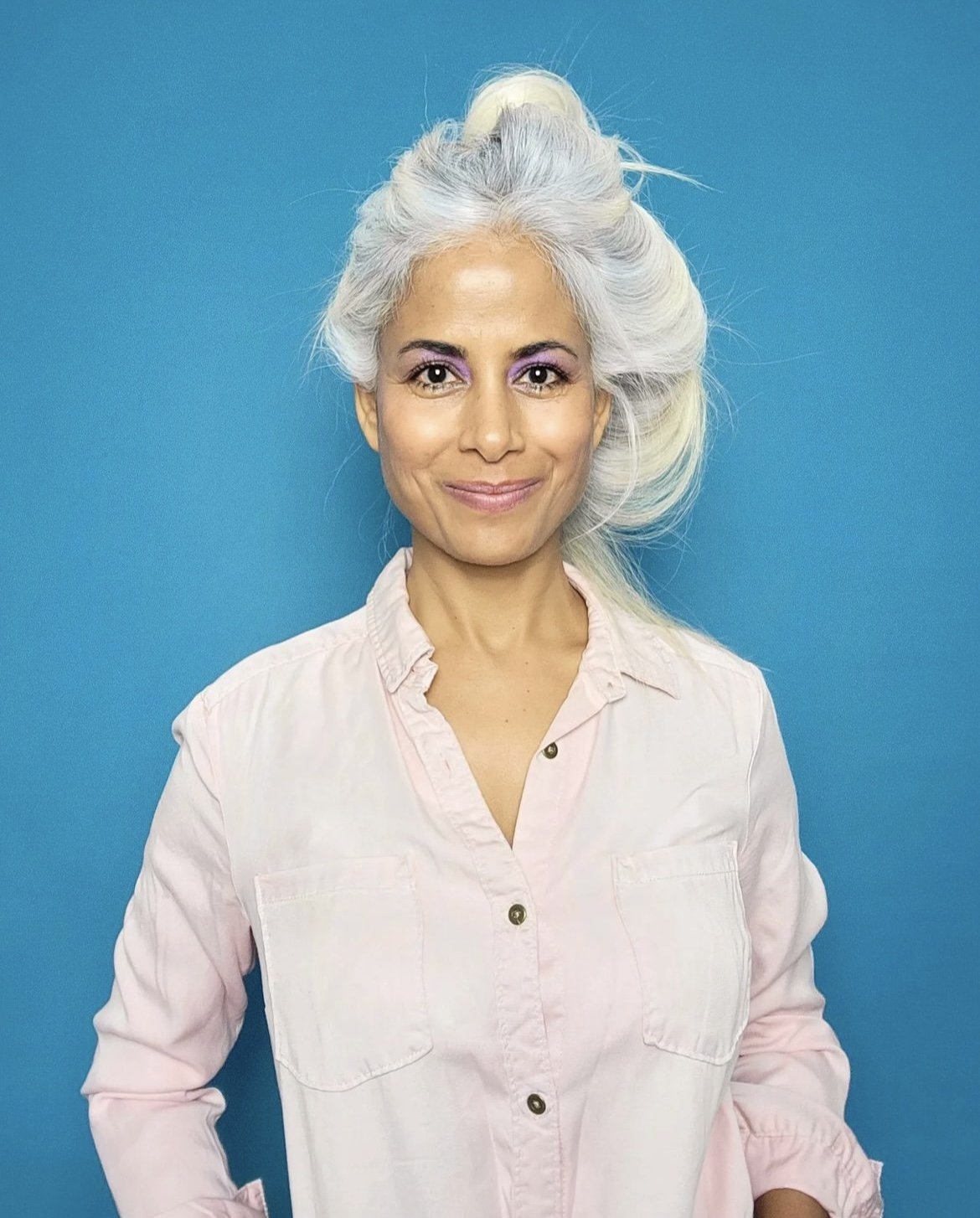
Peppered throughout these women’s silver journeys are stories about how trolls tell them they look old; they should dye their hair; they look ugly. It makes me feel terribly guilty about how I treated my mom all those years. Mom should have told me what my silver sisters tell these idiots: Fuck you, I do what I want.
Deliberately going gray is a definitive kick in the balls to the patriarchy and silver sisters are warriors, slicing away at the shame around getting older with every TikTok and IG post.
Clairol sold the first at-home hair dye in 1956 with an ad coyly asking, “Does she… or doesn’t she?” Way to ingrain the belief that not only should you hide your natural hair, you should also pretend your dyed hair is natural.
Today, hair color is a 23 billion dollar industry. I’m convinced this is why scientists have never invented a cure for gray hair—the hair color conglomerate is too strong!
Actress Andie MacDowell wowed everyone at the Cannes film festival with her gray and silver curls. In an interview with Katie Couric, she spoke about the fatigue of bowing to the male gaze. “I’m tired of trying to be young. I don’t want to be young. And to be an older person trying to be young, what an effort,” she said. “I just can’t keep up the charade!”
In a Vogue interview, MacDowell called going gray the ultimate power move. “I’ve never felt more powerful. I feel more honest. I feel like I’m not pretending. I feel like I’m embracing right where I am. I feel really comfortable.”
They sure had us all these decades, calling women old when we got wrinkles and turned gray while fawning over the silver foxiness of George Clooney. Well the jig is up. We don’t believe it anymore.
True Freedom
It’s been nearly a year since I ditched the dye. There were a few months in the beginning where I got many a side-eye, “Does she realize her roots are getting loooong?” I often hid my hair under caps or just tied it back.
With almost half my hair grown out now, I’m wearing it out and proud. This summer, I’ve gotten compliments from women and men, saying they love my hair and my “vibe”. I’m not sure if they think I’m rocking some ombre look, but I’ll take it. I love that my hair is getting thick and healthy again. I’ll be honest, though, there are times when I worry I won’t love my hair once it’s fully salt and pepper. Maybe I will feel old and I’ll want to dye it again.
Even with those worries, going gray has been liberating—more than going braless and makeup-free. I’ve been dyeing my hair for decades, losing hundreds of hours and so many thousands of dollars, trying to pretend I’m not aging. Well, mortal friends, we are all getting older and it’s okay. My time on Earth may have been better spent on living rather than sitting in a chair for hours every six weeks with bleach burning my scalp.
But I don’t blame my younger self nor do I think everyone should become a silver sister. It’s not like I’m stopping my skincare routine anytime soon. True freedom is deciding what feels comfortable for you, not for anyone else. True humanity is not judging anyone else for their choices.
You do you, sis, and I’ll be here for it.

